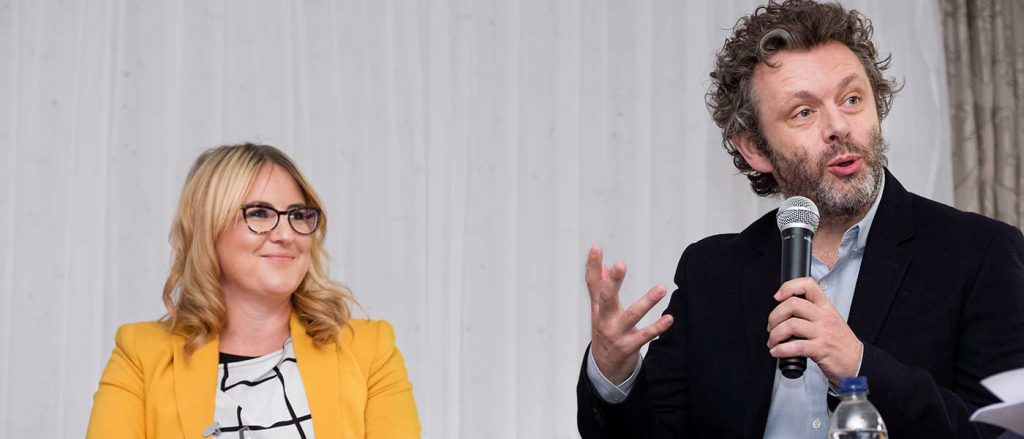Our Work
The Well-being of Future Generations Act gives us the encouragement, the permission and the obligation to make the changes needed to deliver the Wales we want
It is a unique, pioneering piece of legislation attracting worldwide attention. It offers huge opportunities for us as a small nation, here at home and globally, but we do not underestimate the scale of the challenge ahead if we are to make the most of them.
Our approach will be one of constructive challenge underpinned by support. The Commissioner is determined to support a move away from the “tick-box” approach to duties and responsibilities and towards a long-term approach to delivering services in a joined up way that supports people now and in the future.
Her draft strategic plan sets out how she intends to do this. She will:
Be a guardian for future generations – demonstrating the risks they face and challenging short-term policy-making. This will include producing the first Future Generations Report by 2020 as required by the Act, setting out how public bodies can think and plan for the future
Challenge public bodies to take action on the biggest threats facing Wales, offering support by building insight into the best ways of tackling the challenges we face and highlighting the opportunities to act.
My engagement work has so far identified the following emerging priorities:
Climate change
focusing on reducing emissions and tackling impactsEconomic change
shifting to an economy that is fit for the futurePopulation change
tackling the challenges and opportunities of an ageing population, the changing composition of our communities and the importance of early years and adverse childhood experiencesCitizen disengagement
championing public participation and involvement in decision-makingShare learning with other nations – promote the Welsh approach whilst learning from others – supporting and challenging progress on sustainable development
Challenge ‘business as usual’ within the public sector, supporting improvements in assessing and planning for well-being
Support and challenge those who set performance frameworks and those who independently review them to develop an integrated, long-term approach to effectively assess and challenge public bodies on their contribution to the Well-being of Future Generations Act
Build strong effective partnerships and develop a movement for change within the public sector, where people champion the Wales approach to sustainable development
Champion effective public involvement and engagement, challenging ourselves and others to better understand the needs of our communities, our people and their influence in the decisions that affect them
Put the Sustainable Development principle and the Five Ways of Working at the heart of all we do. This means working collaboratively and taking a partnership approach to support services in delivering our work wherever possible. I will seek learning from others and share our own organisational learning with public bodies as part of our statutory duty to promote sustainable development.

How we are making it happen
Well-being Assessments
The first major task for the Public Services Boards has been to develop a picture of economic, social, environmental and cultural well-being for their communities – for now and for what it might look like in the future.
‘Well-being in Wales: Planning: Planning today for a better tomorrow’ report highlights the challenges and opportunities for the future, driven by the need to change the way we deliver public services in Wales following the publication of well-being assessments published by the 19 Public Services Boards across Wales.
Read the Future Generations Commissioner for Wales’ individual feedback to each of the 19 Public Services Boards draft well-being assessments.
Cardiff Capital Region City Deal
As a 20-year programme, the City Deal also offers an unusual and valuable opportunity for the authorities involved to work for the long-term. It is also an opportunity to show how applying the Act to a major public investment programme could deliver transformational change in terms of our economic, social, cultural and environmental well-being.
M4 Inquiry
Large infrastructure projects such as the proposed M4 relief road scheme provide an ideal opportunity for those responsible to demonstrate how they are fulfilling their duties in relation to the Act.
Network of Institutions for Future Generations
The network is a forum for different countries across the world to share knowledge, experience and best practice. It is also a platform for innovative ideas on the institutional protection of future generations and their environment. Sophie Howe, Future Generations Commissioner for Wales is Chair of the network.
Talking Future Generations
In the first six months of taking up the role, the Commissioner met with all 44 public bodies in Wales, the voluntary sector, community organisations, experts and contributed to over 100 events in Wales and abroad. These conversations have identified some key challenges facing Wales and helped inform her approach so far. The Commissioner is continuing the conversation as she develops priority areas for action to support those tackling the key challenges— find how you can get involved.
Providing advice and support to Public Services Boards on well-being planning
The Future Generations Commissioner for Wales writes setting out her approach to support and advise on well-being planning over the coming year.
Fit for Future Generations
Working in partnership and collaboration with others we are developing a programme of work around the concept of ‘Fit for Future Generations. The programme aims to provide public bodies and Public Service Boards with practical support on how best to maximise contributions to the seven well-being goals and five ways of working by sharing knowledge, experience and expertise, as well as encouraging new ideas and approaches to overcoming traditions and systemic barriers.
Art of the Possible
In alignment with the involvement and collaboration principle of the Act, we are developing networks to clearly explain and demonstrate the full potential of the seven well-being goals, working with goal conveners to offer practical resources and expertise to support public bodies and Public Service Boards working towards achieving all of the well-being goals.
 We never share your information.
We never share your information.